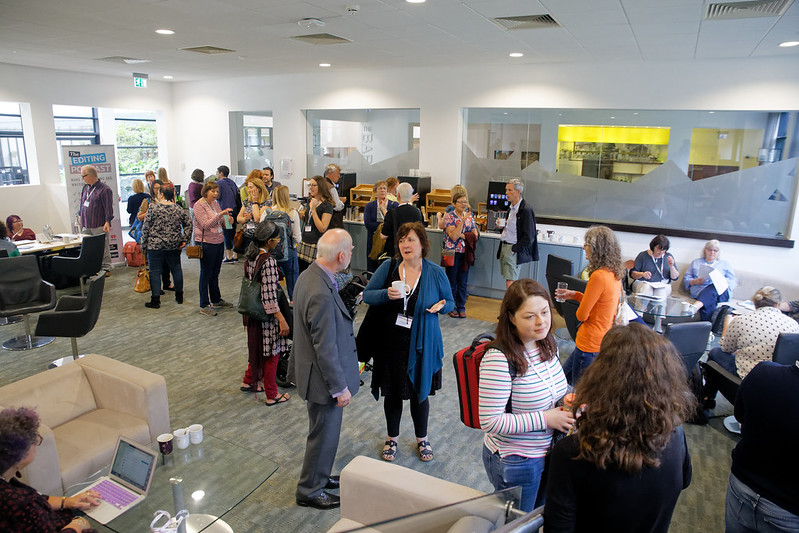This feature comes from the band of CIEP members who volunteer as forum moderators. You will only be able to access links to posts if you’re a forum user and logged in. Find out how to register.
 With so many new members signing up to the forums, now is a good time to discuss the many things you have to consider when setting up an editorial business.
With so many new members signing up to the forums, now is a good time to discuss the many things you have to consider when setting up an editorial business.
The practicalities
If you’re based in the UK, take a look at www.gov.uk/set-up-business for information on all the financial and practical aspects of setting up a business. You will have to register it, decide on a name, keep records of the money you make and your expenses, and complete self-assessment tax returns. Many editors are sole traders, and information on this is at www.gov.uk/set-up-sole-trader. Business expenses for sole traders and other freelancers were discussed on the forums in the spring.
If you get stuck, then contact the government helpline.
As also discussed on the forums recently, HMRC runs helpful webinars on a range of relevant topics. CIEP members testified to their usefulness and the value of seeing the human faces behind the tax system.
Your local council may hold seminars on how to run your own business and may offer business grants for new starters, so check out their website.
If you’re in another tax jurisdiction, ask about equivalents on the forums.
Editorial training
It’s not enough to be good at spelling and eagle-eyed at spotting typos. If you want to work as an editor or proofreader, there’s much more you need to know about, from style sheets and house styles to grammar, consistency, layout and presentation. Good-quality editorial training will: (a) reassure you that you know what you’re doing; (b) fill in gaps in your knowledge and help you review learned habits; (c) help to set you apart from the thousands of other copyeditors and proofreaders, and (d) assure clients that you are a professional who knows what you’re doing.
The CIEP runs core skills training courses and courses on other editorial skills, from medical editing to working on fiction.
So the first answer to the question ‘Why train?’ is the obvious ‘To gain and then improve core editorial skills’. If you have never been taught, systematically, how to edit or proofread, you should start [training] now. Nobody would wake up one morning with a desire to be an accountant and set to work without help. Professional editing and proofreading are no different.[1]
There have been recent forum discussions on proofreading web content and proofreading training for American editors.
 What equipment will you need when setting up an editorial business?
What equipment will you need when setting up an editorial business?
- Somewhere you can work without being disturbed by your household (including pets). A big enough desk and a comfortable, supportive office chair.
- A computer, preferably with a screen that is large enough to view one or more whole pages.
- A professional email address (charlotte-edit@host.com or charlotte@businessname.org rather than chaz-lol-xx@host.com).
- Style guides – so you can answer the many questions that will come up, such as ‘should an ellipsis have a space before and after, or be closed up?’ New Hart’s Rules is a commonly used guide for British English editing and Chicago Manual of Style (CMOS) for US English, but which style guide(s) you buy will depend on which language you are using, the type of client you work with, and the subjects you work on.
- A dictionary – there are plenty of free online ones and a popular one is Lexico.
CIEP members get a discount on many dictionaries and reference books: see the members’ area. For general recommendations on reference works, see www.ciep.uk/resources/recommended-reference-books/general-editing-publishing-style.
CIEP members discussed their favourite work-related purchases on the forums in July.
Marketing yourself and finding clients
Now that you’re all set up and raring to go, where are you going to find your clients? This question comes up regularly on the forums, especially the Newbies forum, so do have a look. Recently there have been threads on next steps in starting a business and business networking.
Also, check out Louise Harnby’s great resources: www.louiseharnbyproofreader.com/marketing-your-editing–proofreading-business.html
Working from home
If you’re used to working in an office with other people, the transition to working on your own can be tricky. It’s not for everyone; some people need the buzz of a busy office and don’t cope well with looking at the same four walls each day.
You need to be self-disciplined and stick to working hours – however you define them! – or you could find the days drifting past in a fog of Twitter, daytime TV and housework: ‘I’ll just pop a wash on … oooh, the floor needs sweeping. Where did that hour go?’ If this is you, you might find a recent discussion on time-tracking tools helpful.
Make a list of the things you need to accomplish each day, so you can tick them off and feel a sense of achievement.
 CPD
CPD
This has been more difficult during lockdown, but there are still plenty of ways to keep your editorial knowledge up to date. Many local CIEP groups are meeting via Zoom and there are always the forums. See www.ciep.uk/standards/continuing-professional-development for more CPD ideas.
Anything else?
This is only an overview. If you have a question on anything not covered here – who to choose as a website host? What social media platforms are best for networking and finding new clients? – then ask on the forums! Many CIEP members are happy to share their experiences of setting up their own businesses. In August there was a lovely forum thread entitled ‘How did you get started?’ in which many members, experienced and not-so-experienced, shared stories of their first steps into editing and proofreading.
You’ll find a list of recommended resources to help you set up a business on the CIEP website: see www.ciep.uk/resources/recommended-reference-books/running-freelance-editorial-business.
Running your own editorial business can be a hugely rewarding, worthwhile and satisfying way to earn a living. Enjoy the journey!
[1] ‘Why train?’ Rosemary Roberts MBE. This article first appeared in the SfEP’s then newsletter, Copyright, in June 2000 and was updated in May 2004. See www.ciep.uk/training/why-train
Photo credits: Come in we’re open by Álvaro Serrano; Home office by Mikey Harris; Office space by Annie Spratt, all on Unsplash.
Posted by Abi Saffrey, CIEP blog coordinator.
The views expressed here do not necessarily reflect those of the CIEP.










